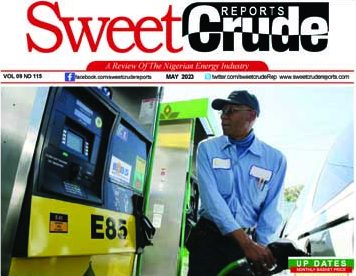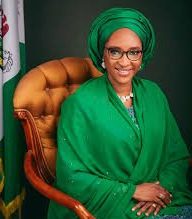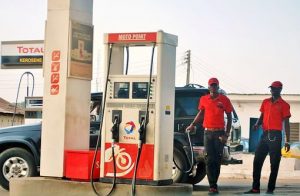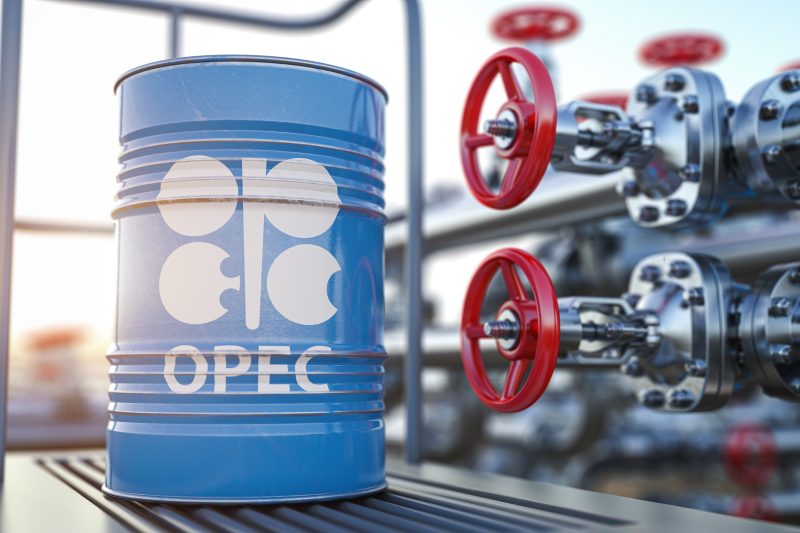
*Outgoing govt contradicts, debunks self
*A herculean task for incoming govt
*Labour still opposed to policy
Chuks Isiwu
Lagos — Uncertainty is surrounding Nigerian’s plan to remove subsidy on petrol as from next month, with less than 29 days to the official hand over of the affairs of government from the incumbent President Muhammadu Buhari administration to the new regime expected to assume office on May 29.
The government’s original plan, as contained in this year’s budget, is to fund the expensive but popular subsidy until the end of its tenure and hand over the responsibility to the incoming government to decide what to do as from June. It set aside N3.36 trillion ($7.3 billion) this year to spend on petrol subsidy until June, after which it has made no provision for the expense, which cost more than its spending on healthcare and education. The government had gone ahead to secured $800 million from the World Bank to scale up its national social programme ahead of the subsidy removal.
But, it is currently not exactly clear what will happen to the plan following government’s recent engagement in contradicting and debunking itself on the matter.
Govt contradicts, debunks self
Rising from a meeting at the Council Chambers of the Presidential Villa, Abuja, on April 27, the National Economic Council, NEC, announced “the suspension of the planned removal of petrol subsidy by the Federal Government as from June this year”.

The Minister of Finance, Budget and National Planning, Mrs. Zainab Ahmed, broke the news on the decision of the council to State House correspondents after the meeting, which was presided over by Vice President Yemi Osinbajo.
“Council agreed that the timing of the removal of fuel subsidy should not be now. But that we should continue with all of the preparatory works that need to be done and that this preparatory has to be done in consultation with the states and other key stakeholders including representatives of the incoming administration.
“Council agreed that the fuel subsidy must be removed earlier rather than later because it is not sustainable. We cannot afford it anymore. But we have to do it in such a way that the impact of the subsidy is as much as possible, mitigated on the lives of ordinary Nigerians.
“So, this will require looking at alternatives to the fuel subsidy that needs to be planned for and subsequently put in place. But also what needs to be done to support the people that will be most affected as a result of the removal,” Ahmed said.
She added: “We have a plan that we will start working on putting the building blocks towards the eventual removal of the first subsidy.
“And if I may remind this forum that the budget for 2023 has a provision for fuel subsidy only up to June 2023 and also the Petroleum Industry Act has a provision that requires that all petroleum products must be deregulated 18 months after the effective date of the PMS removal and that that period is also up to June 2020.”
The following day, April 28, the Federal Government, through the same minister of Finance, Budget and National Planning, Mrs. Ahmed, back-pedalled on the announcement of the suspension of subsidy removal.
“Against the backdrop of the story in some media that the Federal Government has suspended the removal of petrol subsidy, the government has said that it has not suspended the removal, but has rather expanded the subsidy removal committee to include teams from the incoming administration and the state governors,” the minister said in a statement.
She also said, according to the statement, that NEC deliberated on the issue extensively and concluded that the subsidy must be removed as it is not sustainable, but that there is a need for further consultations, especially the need to involve members of the incoming administration and representatives of the state governments.
“We agreed to form an expanded committee that will be looking at the process for the removal of the subsidy, including determining the exact time as well as the measures that need to be taken to provide support to the poor and the vulnerable,” she added.
Mrs. Ahmed further stated: “There is also the need to agree to alternative measures that will be put in place to ensure that there is sufficient supply of petroleum products in the country.”
The “Subsidy Removal Committee”, according to the minister, currently comprises the Ministry of Finance, Budget and National Planning; Ministry of Petroleum Resources; Nigerian National Petroleum Company Limited, NNPC; the downstream and upstream regulators; Central Bank of Nigeria, CBN; and the Chief Economic Adviser to the President.
She explained that the committee is to work out a road map for the removal of the subsidy.
What all these means is that the June date for the removal of the subsidy may no longer be feasible, and that the subsidy regime may have come to stay longer than originally expected.
Herculean task for incoming govt
The three main contenders to the Nigerian presidency, in the run-up to the February 25 general election – Bola Tinubu of the All Progressive Congress, Peter Obi of the Labour Party and Atiku Abubakar of the Peoples Democratic Party – all agreed to remove subsidy on petroleum products.
With this, Tinubu, who was declared winner in the presidential race by the Independent National Electoral Commission, will, if sworn-in into office on May 29, be in a position to execute his agenda of removing the subsidy.
Whether he will eventually do this, when he will do it and how he will do it present another angle to the uncertainty surrounding the policy.
The new government, in trying to implement the subsidy removal, would have to contend with organised labour, which is opposed to the removal but says it would support the move on certain conditions.
Labour opposition

The two industrial unions in the Nigerian oil and gas sector – National Union of Petroleum and Natural Gas Workers, NUPENG, and Petroleum and Natural Gas Senior Staff Association of Nigeria, PENGASSAN – are both opposed to the removal of the subsidy, so also the Independent Petroleum Markers Association of Nigeria, IPMAN. They say they would support the move only on the condition that the Federal Government ensures the local refineries in Warri. Kaduna and Port Harcourt are fully functional before such move.
In speaking against the planned subsidy removal, NUPENG said in a communique released at the end of its national executive council, NEC, meeting in Lagos, that “NEC-in-Council also examined the recurrent discussions for the removal of subsidy from the Petroleum Motor Spirit, PMS, and expresses deep concerns over the failure of the Federal Government to do the needful as advised by organised labour that deregulation of the PMS should not be predicated on importation of the product because of all the obvious negative impacts on the socio-economic life of the people and nation in general.
“The council-in-session expressed disappointment in the failure of the government to deliver on its promises of making the three national refineries work before contemplating the removal of the subsidy on this very important economic item in view of the enormous implication and the impact on the economic activities and considering the socio-economic importance of PMS to ordinary Nigerians.
“The NEC-in-session reaffirms that in as much as our union is not averse to the removal of PMS subsidy, the Federal Government must ensure that our local refineries are put into full operation before a such major policy decision is taken in the interest of the generality of Nigerians.”
The Independent Petroleum Marketers Association of Nigeria also recently spoke in this vein, saying the removal of fuel subsidy should happened only after the nation’s refineries have been fixed to operate at optimum capacity.
IPMAN chairman in Rivers State, Dr. Joseph Obele, who stated this while speaking to newsmen in Eleme, near Port Harcourt, accused the government of paying lip service to the rehabilitation of, particularly, the Port Harcourt refinery.
The Petroleum and Natural Gas Senior Staff Association of Nigeria, PENGASSAN, on its part, expressed worry over the impact of subsidy removal on the masses without the fixing of the refineries.
Chairman of PENGASSAN, Port Harcourt Zone, Comrade George Nwoko, said at the end of the union’s 7th triennial delegate conference in Port Harcourt: “We are not against fuel subsidy removal, but we need to know what the government is doing in providing alternative by fixing the refineries before removing the subsidy.
“Do you know what will be the impact of the subsidy removal on the masses without fixing the refineries? It has been the stand of the union that before subsidy is removed, the refineries should be working.
“Removing fuel subsidy without proper alternative, will lead to inflation in the price of goods and services and the masses will be the ones to bear the brunt. So, we as a union, we are not only for the welfare of our members, but we will also support good policies that will enhance the welfare of the masses,” he said.
The question is, when will the government be able to revamp the local refineries and bring them to full operation, for it to ensure the support of labour on the matter. This might take years, which means subsidy removal might have to wait longer than expected if the incoming government would have to do it with the consent of organised labour.
Follow us on twitter



